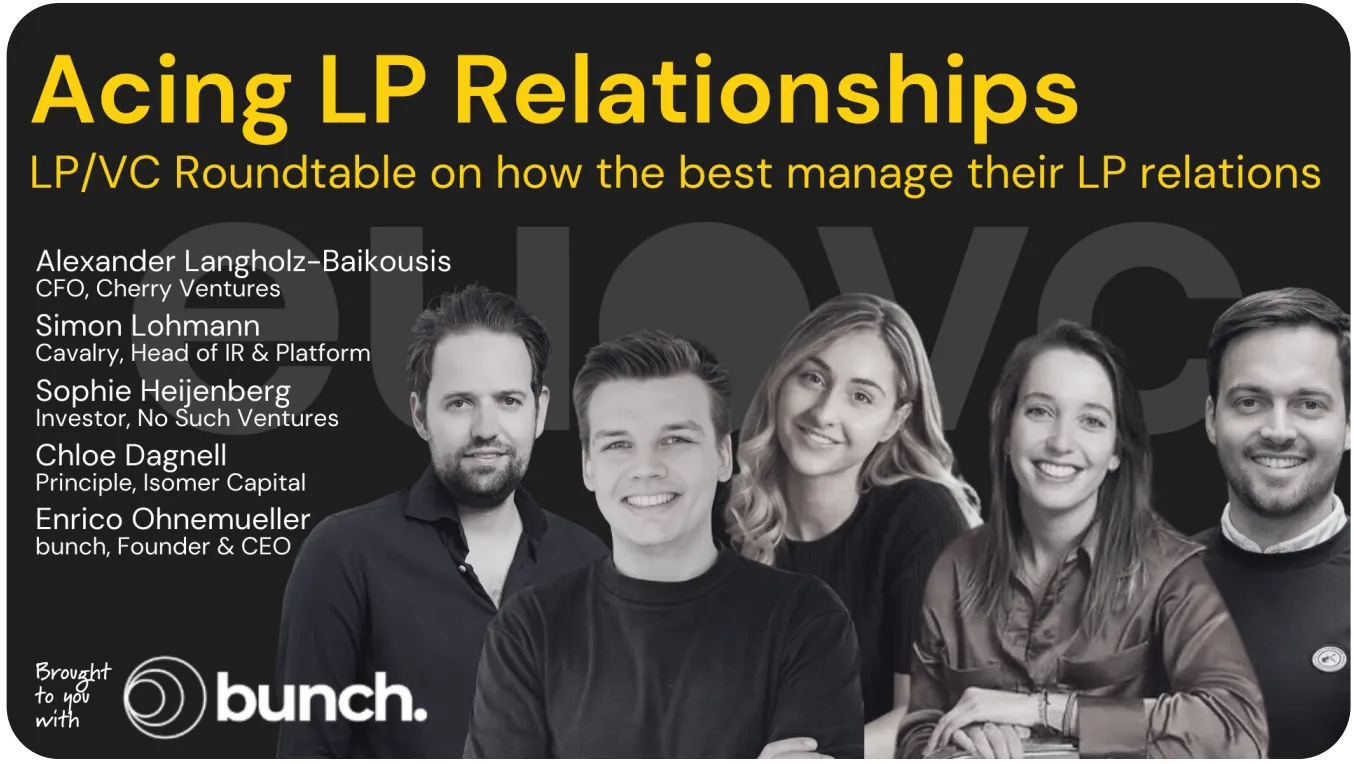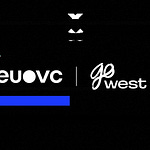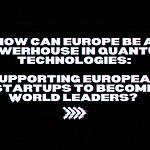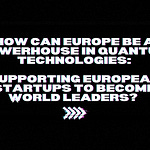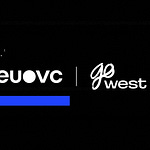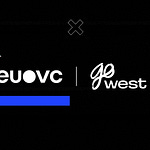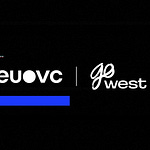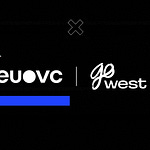George Henry is a General Partner at Phoenix Court Group, the group of funds home to LocalGlobe in Somers Town, London, building global businesses based on innovative science and technology to have the maximum positive impact on society.
LocalGlobe is investing out of their fifth institutional fund, of approx. 150M pounds, with a total AUM of over 1b pounds. Local Globe has an established portfolio of +60 companies and notable investments, including Melio, TravelPerk, Tide, Hibob, Motorway, Wise and Oxford Nanopore, AvantArte, and Sorare.
At LocalGlobe, George focuses on Marketplaces, E-commerce 2.0, and SaaS with a particular focus on SMEs across New Palo Alto, a region that encompasses a market of 40 million people and is roughly 4 hours train ride from Phoenix Court’s home next to St Pancras, London.
George led the investments into Travelperk, Rekki, Taster, and Qogita.
Singling out a co-investor is really hard, but being on board is an amazing opportunity to learn from other co-investors: everyone has a different style, focus, emphasis, angle, etc.
If you look at a board as a team work, you can approach your individual role in a very interesting way. You really don’t have to know it all or do it all. When it’s done well, it’s teamwork at the service of the company.
Listen to the pod on Apple & Spotify 🎧
Table of Contents | Scroll ⏬ for all the insights 👀
Episode chapters.
George’s Journey Into Venture
George’s Pivotal Moment and how it has shaped him as an investor
Deep dive on how George thinks about the relationship between culture, technology and politics - and how that informs his investing.
Take a stance-round.
Shout-out.
Three biggest learnings from the last 10 years.
Advice to 10 year younger self.
Top tips for emerging VCs who are fundraising.
Most counterintuitive learning.
Uncommon belief.
This episode is brought to you in partnership with … Tactyc
Tactyc is the leading forecasting and scenario-planning software for venture capital funds combining portfolio construction, portfolio management, forecasting and reporting into a unified platform.
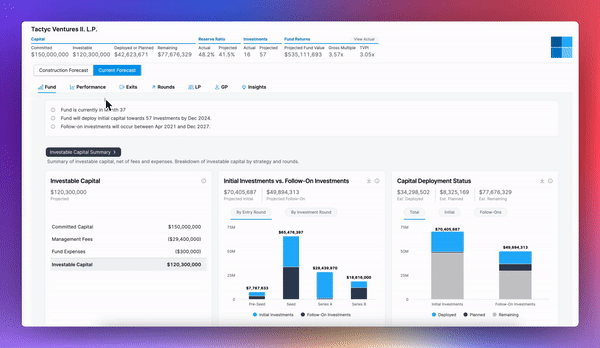
Chapters:
00:00:00 - Introduction to Phoenix Court Group and Local Globe
00:03:03 - Concentrating capital into the most exciting companies
00:08:21 - The Rise of Social Media Platforms
00:11:01 - P2P Marketplace for Local Activities
00:13:44 - Hiring as a VC
00:16:25 - EQ and relationships in the venture capital industry.
00:21:55 - The Positive Aspects of Control and Humility
00:24:51 - The Strength of Europe in the Technology Wave
00:30:23 - The Relationship Between Culture, Technology, and Politics
00:35:47 - The Role of AI in Society and Culture
00:39:00 - The Value of Open Conversations in AI
00:41:40 - The Importance of Teamwork in Venture Capital
00:44:21 - The unique structure and mission of Local Globe
00:47:01 - Lessons learned and the importance of focus
00:49:42 - Investing Tips for Emerging VCs in Europe
George’s Journey Into Venture
With the benefits of connecting the dots in hindsight, I would say there are a couple of “aha” moments:
Exchange program in Macau, Myspace and then Facebook, power of virality and network effects, global reach, it felt like becoming a participant on the internet
Subprime crisis, I was doing a 6 month internship at JPM in IB. Big story behind the subprime was how finance was disconnected from supporting the real economy. In 2009, I travelled to South America with 2 of my best friends and did a reporting project to tell stories about entrepreneurs being supported by different financial means. It did a couple of things: focus on entrepreneurs building businesses against all odds in emerging countries, the financial impact of good capital allocation and used the web 2.0 tools: we built a website, published videos on Vimeo and youtube, wrote blog post, set up a twitter account etc
Then I joined Bain for 2 years and I could see more and more of the projects were future oriented, started to talk about digital transformation. I knew I wanted to get into because it realise that’s where capital was going to be allocated and where innovation would come from. Start of the YC culture, the social network movie and then Airbnb. I thought it was the coolest business ever. With one my best friends, we started a p2p marketplace startup that we launched in Brussels and took to London.
After the startup which we struggle to scale, I really wanted to see what great companies look like. I had the opportunity to join Index after seeing a tweet from Robin Klein on Twitter. I didn’t expect to do venture for a long time, I didn’t really know what it was. I thought I would join a portfolio company or start something again. I went to Index looking for an entrepreneurial opportunity where I would have the opportunity to help build something defining and enduring. That opportunity turned out be LocalGlobe.
George’s Pivotal Moment and how it has shaped him as an investor
I already shared a bit about the subprime crisis and how it shaped my generation culturally. Innovation and engineering moved from finance to tech and software.
It’s probably going to sound very personal but if you ask a pivotal moment in my life, I feel this is the only answer I can give, when I was 4 I lost my older sister who was 6 in an accident. I have to give most of the credits to my parents but the way they went through this and supported me go through has been the most inspiring thing in my life. They showed me that you can go through anything, literally the worst, and you can make something positive out of it. You can still hope and believe that great things will come. It was the best lesson of optimism, taking a long term view while being very connected to the present. Grief is the ultimate endurance exercise which is a key virtue for me. It’s not just patience but endurance. You’re patient that things will get better and you always keep moving forward! It also taught me a lot in terms of EQ.
Deep dive on how George thinks about the relationship between culture, technology and politics - and how that informs his investing.
At a high level I think about my investing in the following way:
Intersection between a hero founder with a unique insights building a breakthrough product made possible by recent compounding of technological layers and whose adoption is going to be accelerated by a cultural/macro tailwind. If you think about the three areas that govern our life/society, I would say today it’s tech, culture and politics. Culture is upstream of politics and tech is upstream of culture. I spend most of my time thinking about the intersection between technology and culture. Culture shapes the present and so it helps to understand which technology/product could be/get adopted. Politics is then there to regulate.
Take SMBs as an example. I’m quite passionate about SMBs because they are the lifeblood of our society, not only economically but culturally and socially (that’s where most people work, spend their time and money etc).
The recent penetration of tech inside SMBs (there is still a long way to go) is made possible by a combination of the smartphone penetration, payments stack and cloud infrastructure but also a cultural evolution where younger people are running these businesses, it’s a generational shift but it’s also because more people want to be entrepreneurs and run their own businesses (not necessarily startups). That’s what has created a lot of momentum and investment opportunities in SMBs in the last couple of years.
However they remain a tough nut to crack in terms of acquisition and finding the right entry point, that;’s where you need the founders with the insights and unique perspectives on a certain market. If you add the most recent technological layer, AI on top of the existing infrastructure (smartphones, payments, cloud) then you realise that acceleration of technology by SMBs might even further accelerate, friction is being removed and startups can probably become more ambitious in their product roadmap because AI allows you to do new things that were impossible before.
We often talk about the big goals like climate and health, which of course are very important and we deploy a meaningful part of our capital to these opportunities, but if you think about it, making SMBs better businesses through software is also a great way to impact society.
The way we like to think and talk about the impact of AI at LocalGlobe is as a great equaliser. It’s going to create a level playing field for businesses and individuals which should benefit society.
Q: Take a stance.
Europe will not sleep through the next technology wave (AI platform shift).” by Simon Lohman — Cavalry Ventures.
I picked this quote not because I disagree with. But rather because I strongly agree and am passionate about it.
I think the best for Europe is ahead.
I know Europe can sometimes have a bad reputation. I’m currently living my life in a country that, sadly, decided to leave the EU. Yes it’s imperfect but we often forget how incredible it has been as a project. Of course, every situation is different but I feel like modern political leaders have so much to learn more about what the fathers of the European project did.
Beyond the politics, i think Europe as a continent and market has 2 amazing things which makes me very optimistic.
Europe has raw ingredients.
Talent, amazing universities, and amazing science capabilities. Europe has money and big industries.
7 of the worlds’ top 30 universities as well as being home to over $110 BN of annual corporate IT spend. Just 5 minutes walk from our offices are our world-leading neighbours in:
Healthcare and life sciences: Crick, Wellcome Trust, UCLH, DeepMind.
Deeptech and AI: Turing, DeepMind
Creative and culture: YouTube, Universal Music, Guardian, Havas, Viacom, British Library
Fashion and retail: Nike, Central St Martins
As well as some of:
The world’s biggest tech companies: Apple, Google, and Facebook
World-class universities: UCL, UAL, SOAS, LBS
The cultural heritage of Europe.
As our world moves towards algorithm, I think in parallel there is an appreciation for intangible cultural value: beauty, design and social sciences.
If you combine the raw intellectual power and talent for breakthrough technology and science based innovation with an amazing appreciation of cultural and social values, I think it’s an extremely powerful combination. Cities like London and more recently Paris (engineering, AI talent but also luxury companies), Amsterdam (Adyen, Booking, design, architecture) are great examples of this.
It’s also reflected in some of most exciting companies that have been built here.
Take Deepmind and Swiftkey which were both 2 of the early breakouts AI companies. Of course they end up being acquired by American companies for scale but it shows the potential. It’s subtle but look at some of exciting consumer marketplace like Wise, Revolut and Monzo in terms of products that reflect the borders and multicultural aspects of Europe. A business like Travelperk, a business travel paltform, has partly differentiated themselves from US competitors with their unique train inventory which is an amazing way to travel in Europe.
Where we can do better in Europe is at the scale up phase. For example, I think ChatGPT could have been invented/created in Europe but it would not have been able to scale as it did.
We need more scale up, long-term capital in Europe.
Q: Give a shout-out to someone you love in the industry
If I can pick a team member, I’ll mention Saul Klein.
I first knew about him when I read an FT interview, where he was already making the case of Europe as a uique place to build great companies.
Right now this seems a lot more obvious but at the time I don’t think it was to many people. It really inspired me and I couldn’t know at the time that a few years later I would join to build LocalGlobe.
Saul has the ability to think radically. I always use Apple’s motto to describe him: «Think different!» Saul is a missionary founder in a way.
Q: Three biggest learnings from the last 10 years of life.
Kids bring the best of you. They teach you (or remind you) some of the most important virtues: patience, empathy, listening, endurance. We view our roles as parents as educating kids, we’ve been through life, we’re gonna teach them etc.
The reality is that it’s much more a 2-way conversation. We have so much to learn from them. It’s been a big haha moment personally when I started approaching it in this way and I have to give a lot of credits to my wife Isabelle for this.Vulnerability is so powerful. A friend who worked for Angela Ahrendts at Apple said that she was the most extraordinary leader he had met, her team loved her. When I asked why, he said because she wasn’t afraid of being vulnerable to her team. It builds a lot of trust. We often think conflate leaders and superheroes. You can have superpowers and also showing your vulnerable side is as important as showing your superpower.
Say No. It’s a hard thing for me and when you start in this industry you think you need to say yes a lot (not necessarily to investments) but: yes to calls
yes to meetings
yes to coffee
yes to events, etc.
Of course you need to build your network and then there is something about serendipity that’s important but also in a way, less is more for me.
I’m still trying to learn and apply this but I really aspire to be very focused, learn to say no without being worried that people will be disappointed etc.
Q: What advice would you give your 10 year younger self?
I’m not sure because I think it’s about learning along the way. Since this is a podcast about investment, 10y ago would have been the year 2013 so probably “put your savings into Bitcoin, take half the return by 2015 and put into ETH” 🙂
Q: What are your top tips for emerging VCs across Europe who are fundraising?
I see myself as an emerging VC and with LocalGlobe and the Phoenix Court platform, we’re very much in building mode so I’m trying think about this for ourselves first. I would say behave like a startup.
Behave like a startup. Pick something you’re passionate about. Ideally something under-explored. Maybe, a bit niche.
I see a lot of emerging managers focusing on operators leaving startups. It’s a great focus but I’d love to see some people focus on other less explored areas. With a small vehicle that we call Basecamp we back solo GPs and emerging managers with an interesting thesis. Gloria from Puzzle Ventures she has seen early and growth both as an investor and operator so has a pretty comprehensive view of the company building journey, you can see she’s using this as her differentiator in pre-seed round.
You have Ramzi Rafih from No Label Ventures, ex-KKR and Silverlake, where his thesis is immigrant founders. Or look at what Nathan Benaich has done at Air Street Capital, he picked something that could have seem niche at the time and now has built arguably the best AI community around him. Nico from Adjacent and his focus on consumer subscriptions.
Q: What’s the most counterintuitive thing you’ve learned in venture?
The vocabulary used in venture often refers to the notion of speed, velocity, growth, move fast and break things, etc. but that vocabulary is for startups (and not always appropriate either), the VC vocabulary should actually be different. It’s an endurance game, take your time, focus on your lane, on your strategy, etc.
Q: Your uncommon belief.
The current vocabulary used in VC can dehumanize and oversimplify the complex interactions involved.
A lot of the VC vocabulary is wrong — process, pitch, passing, bets, VC game — and all the words that refer to a sense of appropriation.
I’m sure I fall victim to it sometimes, but communication and words matter. We all can do better and rethink some of how we talk about it. For example, I hate the word “process”. The framework I like to think about is the one of a conversation.
I actually don’t know whether that would be controversial, but as machines become more powerful, I think humans are going to matter more than ever. The value of deep, real human connection, judgment, and opinion will be valued so much because it has all its flaws, and we know it’s imperfect, but that's the beauty of it. Think about sports. We watch it as humans vs. humans because humans can fail but surpass themselves. This will never disappear.
Upcoming events
📺 Virtual events we’re hosting
Is Crypto back? | Feb 15, 2024, 12:00 PM - 1:00 PM
Acing LP Relationships | Feb 12, 2024, 12:00 PM - 1:00 PM
The O.G. Roundtable of the Year | Jan 29, 2023, 12:00 PM - 1:00 PM
🤝 In-person events we’re attending
Hit us up if you’re going, we’d love to connect!
GoWest | 📆 6 - 8 February | 🌍 Gothenburg, Sweden
0100 Conference DACH | 📆 28 - 29 February | 🌍 Vienna, Austria
Odense Investor Summit | 📆 13 - 15 March | 🌍 Odense, Denmark
0100 Conference Europe | 📆 16 - 18 April | 🌍 Amsterdam, Netherlands
SuperVenture | 📆 4 - 6 June | 🌍 Berlin, Germany
Nordic LP Forum & TechBBQ | 📆 September | 🌍 Copenhagen, Denmark
North Star & GITEX Global | 📆 14 - 18 Oct | 🌍 Dubai, UAE
GITEX Europe 2025 | 📆 23 - 25 May 2025 | 🌍 Berlin, Germany







